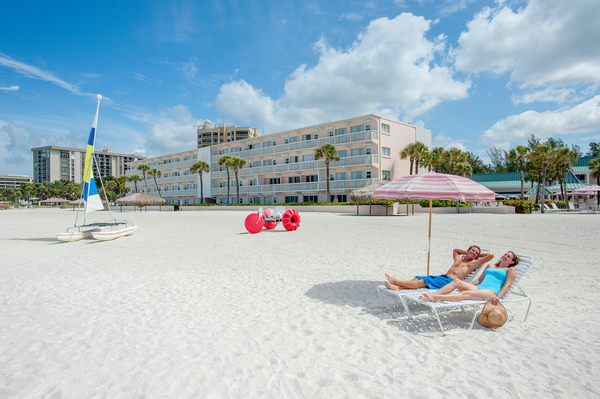Diva Says: Determining Your Time and Place
“We must use time wisely and forever realize that the time is always ripe to do right.”
—Nelson Mandela
“We must use time wisely and forever realize that the time is always ripe to do right.”
—Nelson Mandela
You should have a stack of reviews, brochures, and books about the destinations you’re thinking about exploring. You probably dreaming about your upcoming adventure. This is when you begin to turn your thoughts and energy into commitments and plans—a metamorphosis is taking place, and you are on the verge of creating something wonderful. By the time you finish this chapter, you’ll be ready to commit to a specific amount of time for your adventure, as well as to narrow down your destinations to that one special place. This is an exciting part in your planning, because the world is truly your oyster—and every destination you have thought about can be yours. It’s an opportunity for you to utilize your creativity and begin the discovery process.
“To accomplish great things, we must not only act,
but also dream; not only plan, but also believe.”
—Anatole France
Time
Isabelle is a corporate attorney in Cincinnati. She receives four weeks’ vacation annually, and she looks forward to spending them traveling. Isabelle knows she can never take a full four-week vacation (although she does dream of a month in Prague), so she breaks her vacations into two two-week trips per year. One is in the summer, so she can get her heat fix somewhere nice and hot. Last year she went to the Spanish Riviera and sat on the beach watching the European tourists in August. Then, in winter, she enjoyed two weeks in Canada learning how to ski. Isabelle knows what she wants from her vacations and knows how much time she can spend at each destination. With each trip, she decides what her CAWS priorities are, and then she plans a trip to accommodate her desires. Isabelle’s summer trips focus on Weather and Culture, while her winter vacation focus on Social and Activity.
Like Isabelle, you need to decide how much time you’ll take for your trip. Even though you might have accumulated three weeks of vacation time and want to take it all, can you afford to? Be realistic with the amount of time you can spend going away. If this trip is about relaxing, and you know it takes you at least five days to unwind, then don’t go away for a mere week. By the time get you relaxed, you’ll need to return home!
Knowing how much time you can take will determine how far you can go. For example, if you have only five days off, you don’t want to spend two days traveling to your destination. And if your ideal location is at the far end of the Southern Hemisphere, you really need at least ten days. When you’re traveling to Australia or Southern Asia, for example, two of those days will be spent getting to and from your destination, and your first day there will be needed to get acclimated to your new time zone and climate. That leaves you with a week to enjoy. When you fly west from the United States, toward Asia, you lose two days, because somewhere over the Pacific Ocean you will cross the time line. And when you fly east to Europe you lose one day. You end up getting all this time back, but it is usually when you are heading home.
If you have only a few days to escape, that can be plenty of time for a good vacation, but you need to plan your destination accordingly. I base my travel on this time formula: if I’m going anywhere within a six-hour plane ride, I need a minimum of two full days to enjoy a destination. That’s as simple as leaving Friday afternoon and returning Sunday night. But when it comes to European travel, I give myself at least five days in Europe, plus two travel days (I fly to Europe from San Francisco, so it takes at least ten hours to get there). And for anything beyond a fifteen-hour plane ride, I give myself at least ten days to acclimate, enjoy, and rest. That includes most of the Southern Hemisphere, Asia, Australia, and Africa. If you’re planning on going that far, take the time to enjoy it! And remember that it’s going to take time for your body to adjust to your new time zone and climate. Jet lag is real and if you don’t respect it, your body and mind will suffer.
When Stacy, from New Jersey, planned her trip to Paris, she had only five days to get away. Her CAWS rating was Culture: 5, Activity: 3, Weather: 1, and Social: 2. She did her research and found she would have plenty of time to spend a few days touring museums, shopping, and enjoying a few great meals in the City of Lights. She was right. She left on a Thursday night, arrived Friday morning, and enjoyed all the wonders of Paris until Monday evening, when she caught her flight home. Although her trip was short, she was able to thoroughly enjoy herself and used only two vacation days! I’m envious of you ladies who live on the East Coast, because you can really take advantage of short European vacations. I have a friend who lives in London, and she’ll fly to New York for a long weekend! Like Isabelle and Stacy, you’ll have a fabulous trip wherever you’re going—once you decide when, where, and how long.
“You may delay, but time will not.”
—Benjamin Franklin
• Take a moment to think about how much time you’re going to invest in your adventure. And when this journey will take place.
• What are the dates you have decided to take your trip? Can you be flexible?
• How much time will you dedicate to this vacation? A day, a week, two weeks, a month? Make a commitment to this time.
“There are no shortcuts to any place worth going.”
-Anonymous
Place
Congratulations! You’ve just committed to one of the hardest parts of the trip-planning process. Next you’ll determine where you should travel based on your expectations. You have a list of destinations that you found interesting and where you would really enjoy spending some time exploring. Each destination has a different personality, and many times their personalities change based on the time of year. For example, New York is the most delightful big city in spring and summer. Sitting at an outdoor trattoria in SoHo while sipping Chianti and eating fresh pasta is so very enchantingly cosmopolitan! But catching a cab in midwinter–while the howling wind rips through your body and the rains soaks your clothes, from that same Italian restaurant will leave you with less-than-delightful memories of New York. So, when you begin your research on a specific destination, you might find that it is not the ideal place for you at the time of your departure.
If weather is not a high priority, you’ll have more destinations from which to choose. For example, if you want to go to London and you don’t mind cold weather, you can get some fabulous airline deals in winter. Plan on the weather being a bit chilly, but you’ll find that theater tickets and hotel reservations are much easier to come by. Conversely, if warm weather is a big priority for you but time of year is not, then be willing to travel the seven seas to reach an ideal destination. For example, if you live in Chicago but want to experience New Year’s Eve on a beach in a tank top, you could head to the Caribbean, South America, Australia, or Indo-Asia. There is always somewhere in the world with your ideal climate and temperature—you just have to find it! A good place to search is on www.weather.com; if you enter your destination of choice and the month you want to travel, it will list the average temperature for the month you plan on visiting. This can be very helpful if you are not too sure where you want to go but weather is a determining factor for you. Remember that the Southern Hemisphere has the opposite seasonal pattern from the Northern Hemisphere.
Beyond weather patterns, you’ll need to research the social patterns of your ideal destinations. Explore, research, and ask what’s happening at those places during your planned trip. Just as you would never show up at an acquaintance’s home unexpected, don’t show up at a new location without “calling beforehand” to research the destination.
“Calling beforehand” became a required first step after my trip to Fiji. Fiji seemed like a magical destination in 1988. What could be better than exploring these exotic, mysterious islands floating gently in the South Pacific? Unbeknownst to me, there was a coup during my planned trip. The indigenous laid-back Fijians own the entire island, and they leased the land to hard-working Indian immigrants who wanted the opportunity to buy the land. The Fijians had no intentions of selling their fertile land to the Indians. At the height of this struggle, the Indians took control of the government and military. This political tension became real to me when I was thrust into a frightening situation. I was sitting at a table with a few Fijians and was enjoying a Fiji Bitter beer, listening to Dexy’s Midnight Runners singing about a girl named Eileen, when an officer approached and asked me to dance. He saw that everyone at my table was Fijian and when he asked, I said, “No thanks, I’m hanging out with my friends.” That was it. He glared at me with a corrugated forehead spat n my face, and indignantly huffed away. The Fijians at the table couldn’t do anything for me, as they would end up in jail if they tried to stand up for me. I understood that. The military was in control; no civilians had any power, and I was helpless in this situation. I should have done my research.
The other difficulty I encountered was the Saturday curfew enforced by the military. Services weren’t available for hire, including taxis after sunset on Saturday—until Monday morning. My flight on Qantas to Melbourne, Australia, was on Sunday morning and I didn’t have any way to get to the airport on Sunday. I got a ride there Saturday night from a Fijian, in the back of his pickup. My night at the Fijian airport was shared with three-inch cockroaches—that flew! This whole crazy week could have been avoided had I researched my destination before booking my trip. That’s why it’s a smart idea to have a few locations that interest you, just in case your dream destination is unstable. And remember—be flexible!
Here is a list of current affairs you should check before you book your trip:
• National holidays (Many destinations have less available during holidays.)
• Times of year when strikes happen (Italians love striking during the Christmas holiday)
• Festivals (such as the running of the bulls in Pamplona, Spain)
• Carnivals (such as those in Venice, Rio de Janeiro, New Orleans, or Sydney)
• Sacred months (Ramadan in the Middle East)
• Political climate (such as terrorism in Peru or the Middle East)
• Sporting events (Wimbledon tennis tournament in London, Olympics, Australian Open, America’s Cup, New York City Marathon, etc.)
• Celebrations and parades (such as the Gay Pride parade in San Francisco or St. Patrick’s Day in Boston or Ireland)
By now, you should have a pretty clear vision of when and where you’re going, so let’s get started!
Exploration Exercises
1. Well done on this personal commitment you’ve made! How do you feel about this promise?
2. Where have you decided to spend your time? What have you learned about your destination that you didn’t know before you read this chapter?
3. How are you feeling? Are you getting excited? Worried? Overwhelmed? Anxious to explore?
Discover more from Tango Diva
Subscribe to get the latest posts sent to your email.



